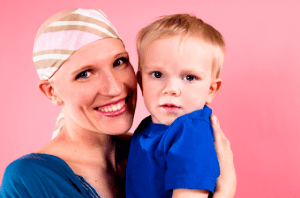By Jay Wang, MD –
Q : I was diagnosed with early stage non-small cell lung cancer. I had surgery and my doctor gave me a referral to an oncologist for “adjuvant treatment,” meaning chemotherapy. Why do I need to do this?
: I was diagnosed with early stage non-small cell lung cancer. I had surgery and my doctor gave me a referral to an oncologist for “adjuvant treatment,” meaning chemotherapy. Why do I need to do this?
A: For a long time, it was believed that only surgery was necessary to achieve a successful outcome for lung cancer patients diagnosed with stage IB to IIIA non-small cell lung cancer. However, a number of clinical studies provided evidence that patients who received both surgery as their primary treatment and chemotherapy as an “adjuvant,” or secondary treatment, reduced their risk of the cancer recurring. Unlike chemotherapy used as a primary therapy, adjuvant chemotherapy is usually shorter-term and has a fixed duration.
Q: My husband has stage 4 non-small cell lung cancer as well as tumors in his bone. Are there two different chemotherapy treatments for both the lung and the bone or are they treated with the same drugs?
A: Stage 4 non-small lung cancer is characterized by the spread of lung cancer cells through the bloodstream to organs outside the lungs such as the liver, brain, adrenal glands or bones. These cells attach to the new areas and begin to grow new tumors. So the chemotherapy your husband’s oncologist has chosen to treat the main tumor site in the lungs would also be considered the most appropriate treatment for the bone cancer tumors that have grown in his bone.
Q: My wife was recently diagnosed with lung cancer and started on chemotherapy. Since diagnosis and starting her treatment, her personality has changed, can chemo affect a person mentally?
A: Chemotherapy can affect a person’s mood, as can other medications such as steroids and pain medications. It is important that you and your wife inform her doctor of changes in her mood to rule out any medical causes. The change in her personality may also be a sign that she is still struggling emotionally with her diagnosis and treatment. Cancer can be overwhelming and bring up many feelings from anxiety to anger to sadness, proper counseling and sometimes anti-depressant and anti-anxiety medications are needed to maintain emotional well-being.
Q: Can I maintain intimacy with my partner while on chemotherapy?
A: It is best to discuss any concerns about chemotherapy and sex with your doctor, who’s familiar with your individual situation. In general, however, it’s usually OK to have sex while undergoing chemotherapy. Caution should be exercised as your immune system is weaker, therefore ability to fight normal genital tract bacteria is lower, and low platelet count can predispose to bleeding. Pregnancy is strongly discouraged during chemotherapy, due to the potential teratogenicity effects on fetus. If conception is possible, you need to choose a reliable method of birth control.
Q: Are there certain foods or drinks I should be sure to include in my diet as a result of my cancer or the treatments I am receiving?
A: In order to maintain the best possible health, cancer patients need to be encourage eat a healthy balanced diet. You may find that cancer or cancer treatment has affected your sense of taste and appetite. Some practical tips include choose high calorie and protein foods, eat frequent small meals per day, pack snacks on hand on all the time. Mouth care is also important to maintain a good diet, especially during chemotherapy. Constipation can be caused by certain chemotherapy and pain medications, make sure you are moving your bowel at least once a day.
Q: My mother just started hormone replacement therapy. I have heard that this can be a contributing cause to cancer. Should she stop taking her hormone replacement medication?
A: Hormone replacement therapy (HRT) is often used to ease symptoms of menopause, such as hot flashes and protect against osteoporosis and bone loss. However, findings from large studies such as Woman’s Health Initiative, have reported an increase risk of breast, ovarian and endometrial cancer, while it decreases the risk of colorectal cancer. You and your doctors need to discuss the risks and benefits for you personally. If you do decide to take HRT, it should be the lowest dose that helps and for the shortest time needed.
Q: I have heard that women who have had breast cancer before the age of 50 are twice as likely to develop ovarian cancer. Has this been proven?
A: While most breast cancer patients do not have a family history or known gene mutation, there is a subset of women, particularly women whom develop breast cancer at an earlier age who have an inherited breast-ovarian syndrome called BRCA 1 and BRCA 2. BRCA are tumor suppressor genes that when mutated predispose cancer development. If suspected, there are several blood tests available, however genetic counseling is recommended before and after the testing. When a mutation is detected, closer surveillance, chemoprevention, and prophylactic mastectomy and oophorectomy may be recommended.
PREMIERE ONCOLOGY
239-325-1440 | www.premiereonc.com










